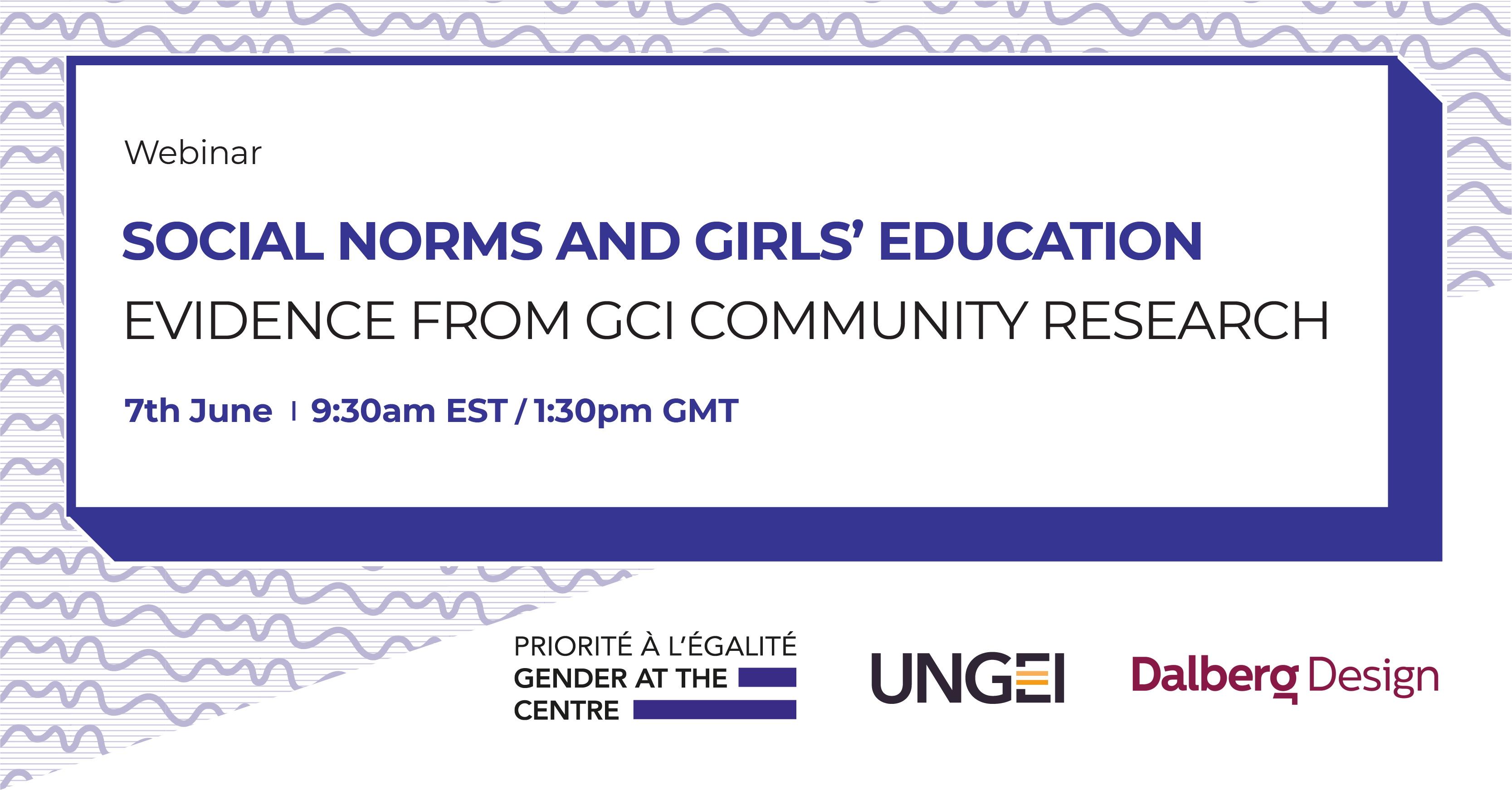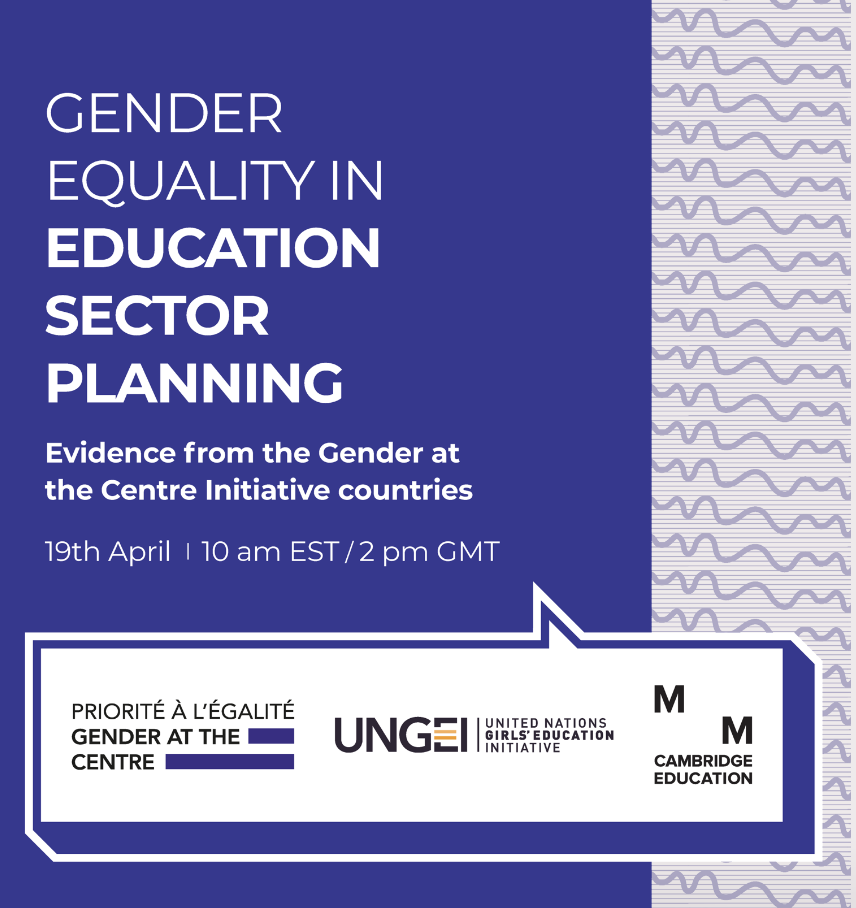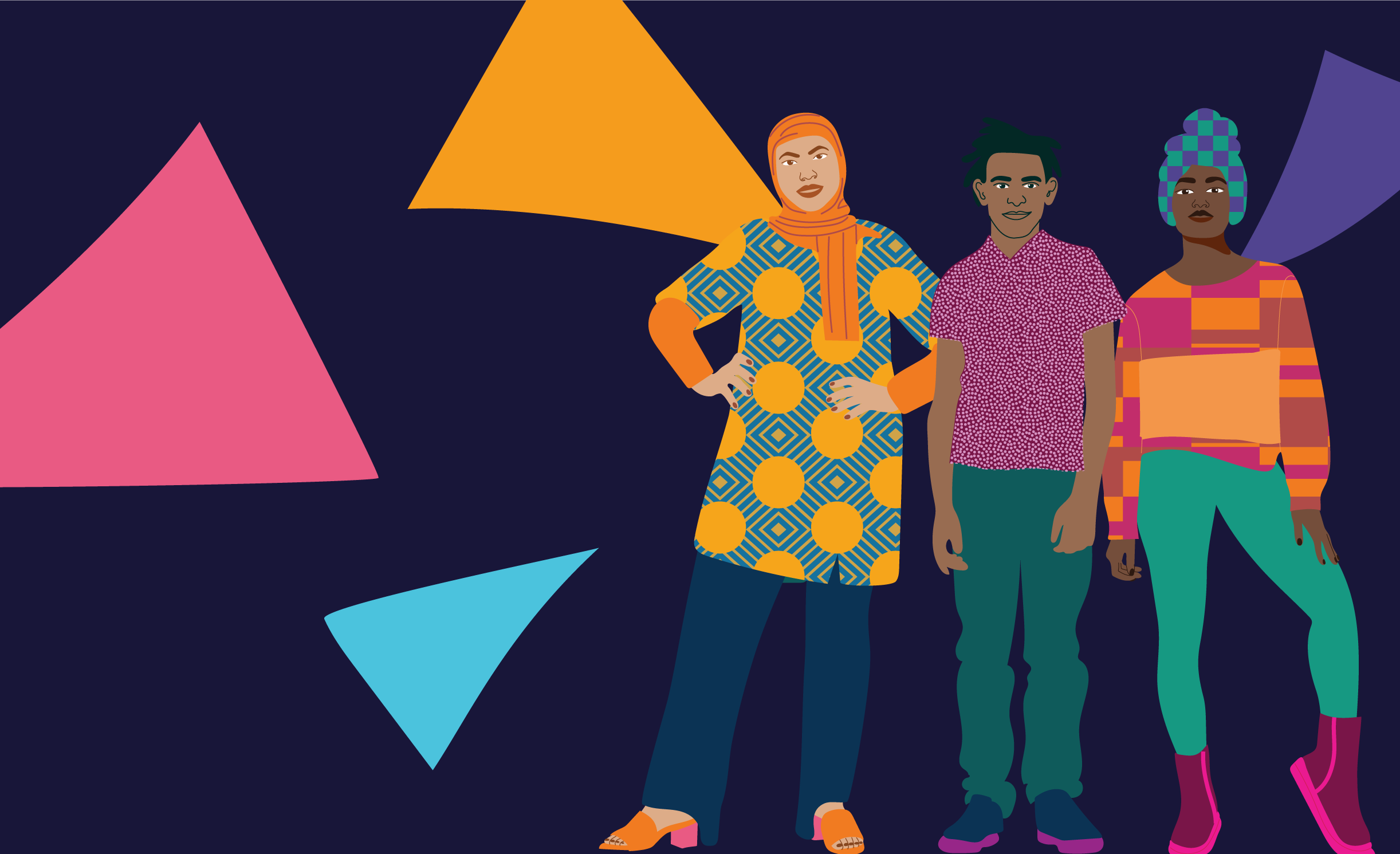While talk of “getting the consistency right” and “velvet triangles”¹ may make us think of science experiments or complex recipes, these terms can in fact help us understand the power of institutions and networks to bring about change. Initial findings from an independent review of the UNGEI-led capacity development programme for Gender- Responsive Education Sector Planning (GRESP) illustrate just how important it is to build networks that include the right ingredients for the structural and transformative change required to advance gender equality in and through education. As the independent review shows, networks of feminist activists working alongside gender-sensitive politicians and civil servants have been shown to promote gender equality outcomes in government policy and practice. They have also shown to be influential for policy processes, particularly for effectively integrating gender issues into education sector plans.
Gender-responsive education sector planning (GRESP) is a whole-system approach to putting gender equality at the heart of education systems through gender-sensitive plans and policies, including in learning environments, teacher education and practice, curriculum and materials development, and leadership and administration. When engaged through collaboration with colleagues, networks and institutions within and beyond the Ministry of Education, GRESP can be a powerful tool to build stronger, more gender-responsive education plans and systems.
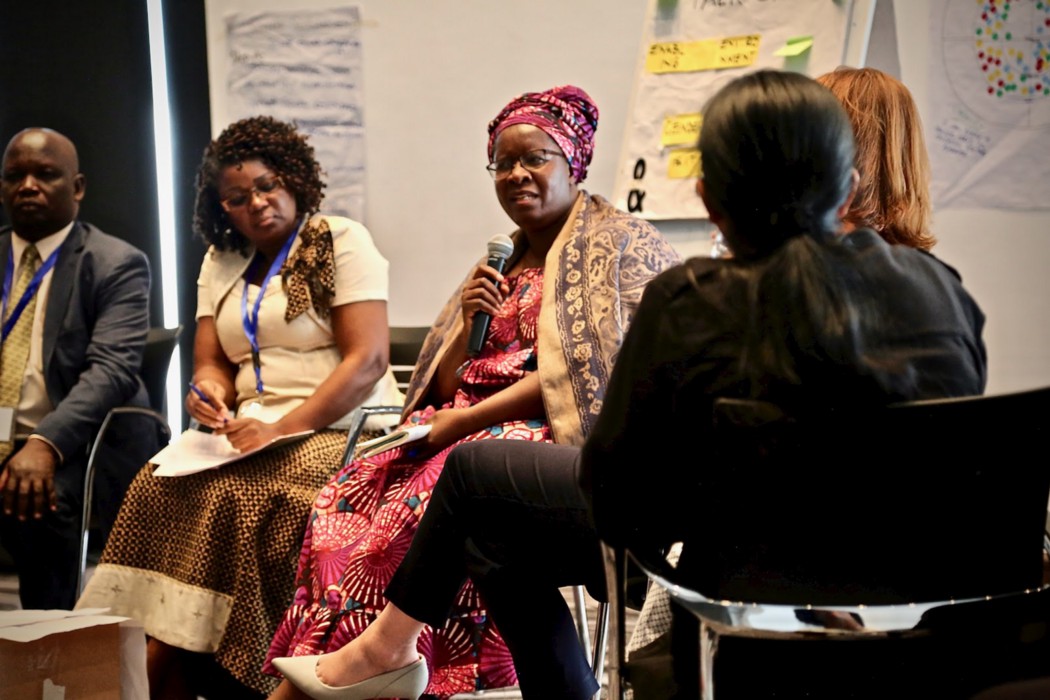
Strengthening institutional commitments to gender equality in and through education
The review has been tracking the extent to which the GRESP programme has been successful in building individual participants’ skills, knowledge and leadership in education sector planning. It is also assessing how well the programme has been able to deepen institutional commitments to the advancement of gender equality in and through education.
The GRESP programme’s intention was to shape both individuals’ understanding of gender issues and to build institutional capacity for ensuring gender equality in and through education. To date, UNGEI and partners, including Plan International, FAWE, ANCEFA, UNICEF, UNESCO IIEP and the Global Partnership for Education (GPE), have led national and regional workshops for education stakeholders in 28 countries across Africa and Asia. Gender at Work (G@W) played a critical role in the design and delivery of the GRESP workshops, which build on a feminist pedagogy approach and the G@W gender analytical framework. Since 2017, over 200 delegates representing government ministries, civil society and development partners have been supported to develop action plans to better address gender-related issues through education sector plans, policies and budgets.
The review finds that the GRESP programme’s adaptive learning approach has been critical to its increased focus on institutional change. Through the adaptive model, subsequent GRESP workshops have been tailor-made to the country content, incorporating learning from previous activities. Houraye Mamadou Anne, FAWE’s Africa region representative noted, “the real challenge is for us to develop this programme into one where we can use a technical process and space to influence the deep structures of inequality in education”.
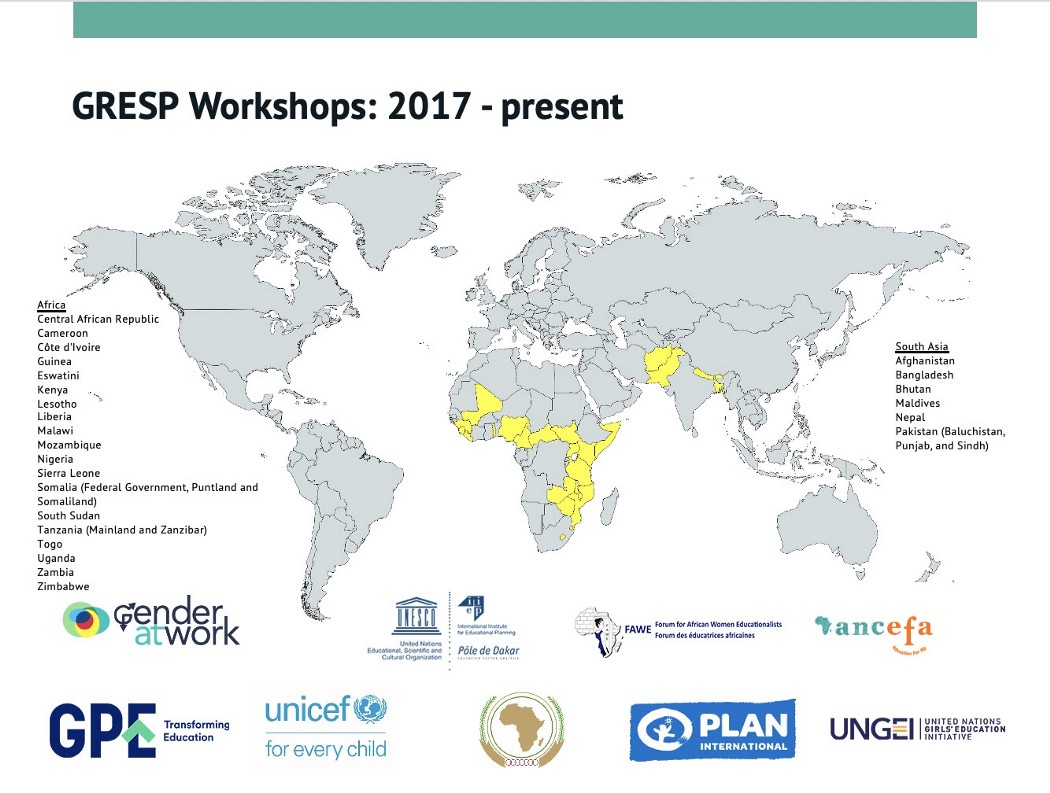
Gender-responsive education sector planning: from a programme to a movement
In addition, a new network of trained GRESP facilitators based in sub-Saharan Africa is being mobilised, moving the programme closer towards one of its original ambitions — to develop a GRESP ‘movement’. This idea builds from growing evidence that movements can be powerful mechanisms for creating momentum and pushing for changes in government policy and practice, particularly when there is resistance to change.
In Zimbabwe, throughout 2020, facilitators trained through the GRESP programme have been working with national coalitions to mobilise progress for gender equality in education and provide civil society leadership. Through this approach, the GRESP programme in Zimbabwe is increasing its potential impact and building momentum for transformative change, realizing its ambition of growing a movement for gender equality in and through education.
There are deliberate actions we can take to build a movement. Here we can see that we have a common cause as well as a bond, an energy. People want to work together and the institutional networks already exist
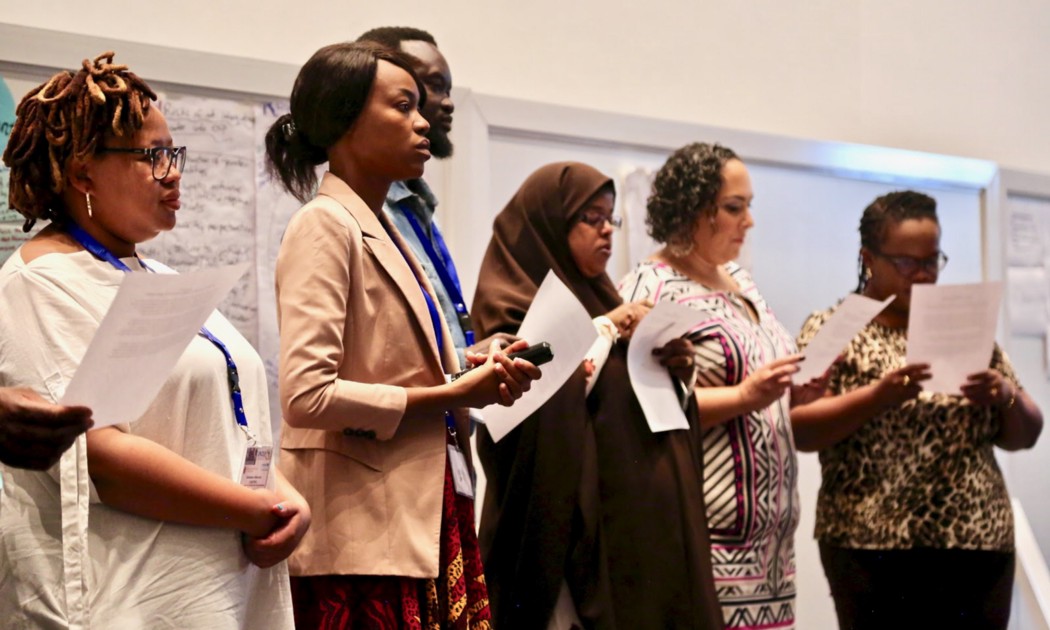
The GRESP facilitators’ network: A new ingredient for institutional change
However, the review has also uncovered the complexities of the political nature of the work needing to be done to meaningfully advance gender equality in and through education. Although supportive networks may exist in government ministries, and civil society organisations may be actively working to advance gender equality, they may not have the power and influence required to enact real, tangible change nor to challenge the status quo.
The review goes on to note that programmes like GRESP can only meaningfully support the leadership required for this kind of deeply political work to shift power and change institutions through ongoing and strategic in-country facilitation and support. In Nigeria, GRESP trained facilitators have been working in a number of different ways to do this — mobilising civil society actors, facilitating communication with government and supporting technical contributions on gender issues to the education sector planning process.
This is really about getting to the root of what we are trying to change, unpeeling the different layers of gender inequality, and then building back up our strategy for change
Another important lesson that has emerged is that despite the GRESP programme’s efforts to support country delegations to drive institutional change, the national processes that shape the actual development and implementation of the ESP must be skilfully facilitated and navigated with care. This opportunity largely sits outside of the direct influence of the GRESP programme. The programme’s facilitators’ network is a new ingredient, with the potential to promote positive cultures within government that are likely to support and advance gender equality.
At the same time, the GRESP programme has been slowly evolving into more of a demand-driven, bottom-up model. FAWE in particular sought to shift the supply-driven process into a demand-driven one, which seeks to build civil society capacity and genuinely influence the technical process of education sector planning (with a view to gender-responsive implementation). As Lydia Madyirapanze from FAWE Zimbabwe explains, “GRESP is a facilitated process that so powerfully brings gender issues into the guts of education management. This process shows us that as activists, policy makers and facilitators, we can work together. It’s now in our hands and we are the future of a more gender-responsive approach [in our country]”.
